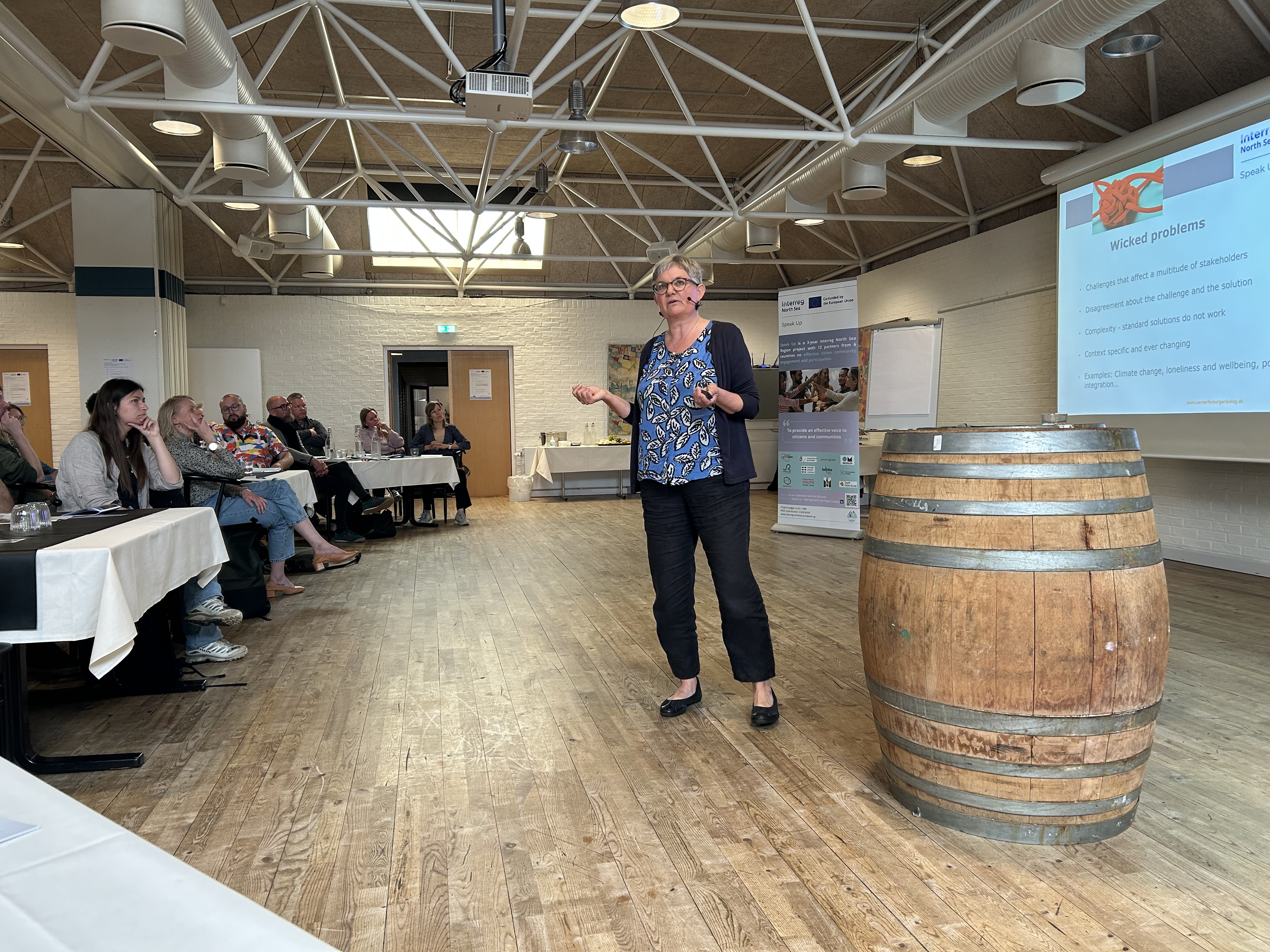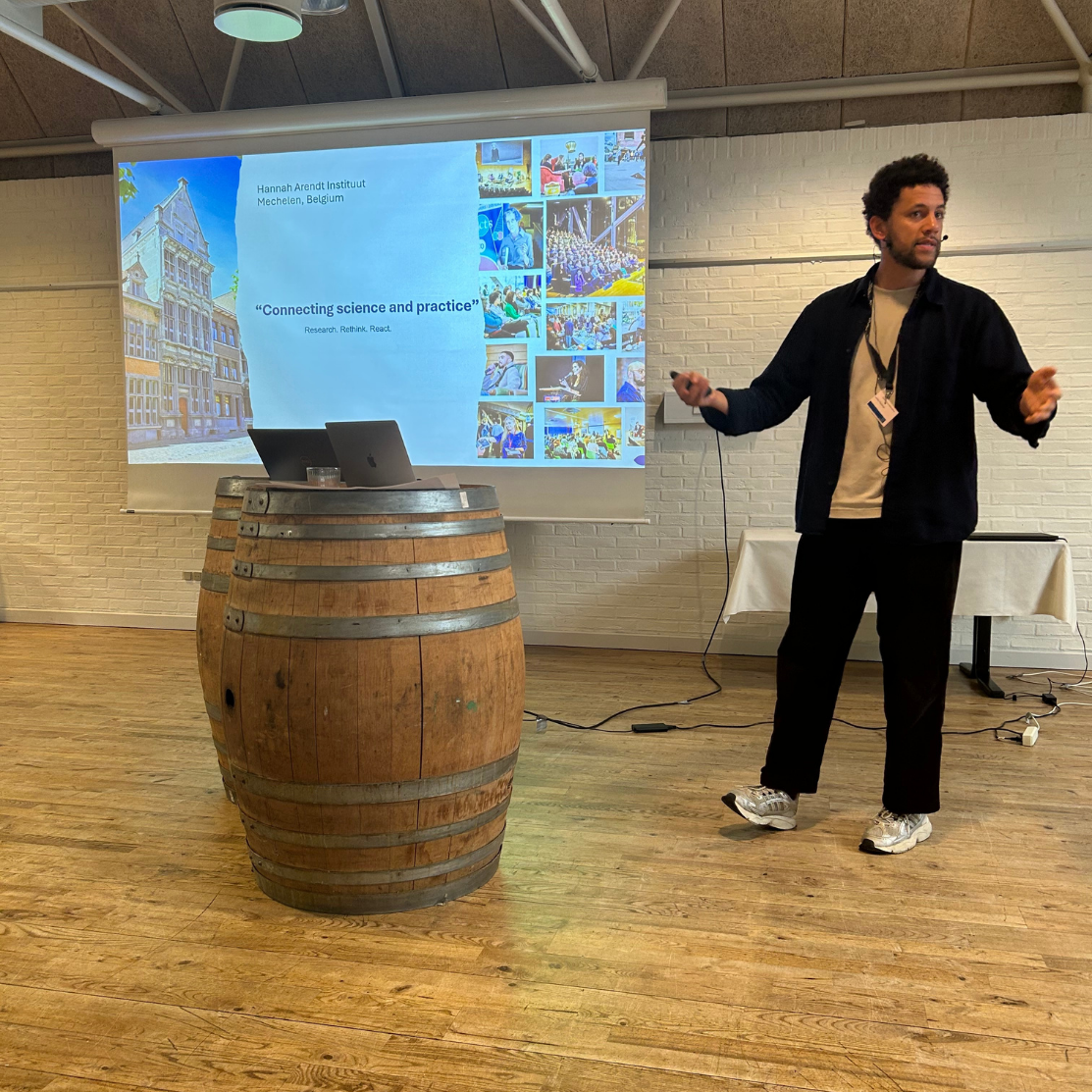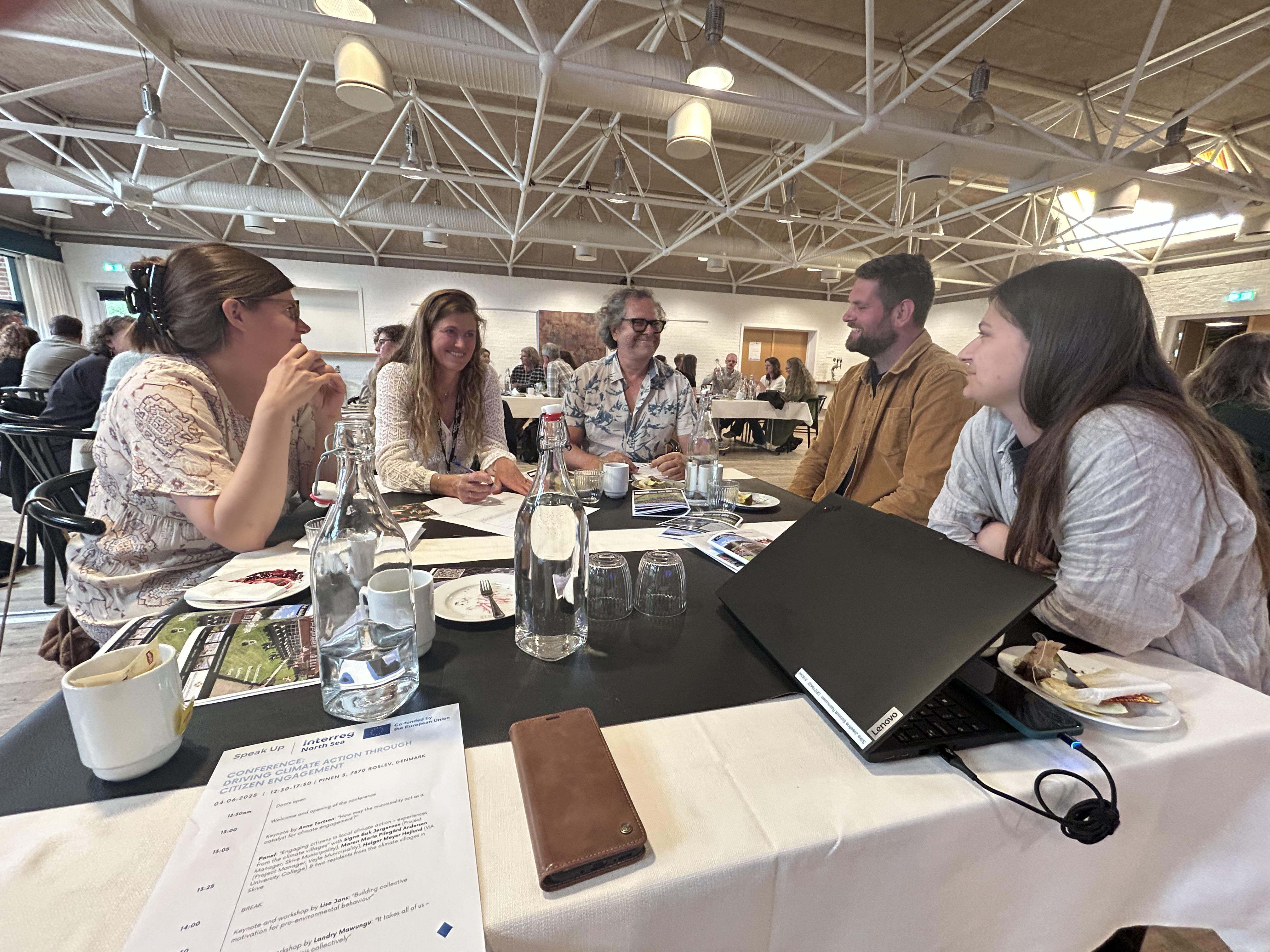On June 4th 2025, over 60 participants gathered in Skive for the conference Driving Climate Action Through Citizen Engagement, organised by Skive Kommune and VIA University College. It was the second external conference hosted by the Speak Up partnership. The event brought together local practitioners, Danish stakeholders, and all Speak Up partners to explore how citizens can become central actors in climate solutions.
Anne Tortzen, keynote speaker from Copenhagen’s Centre for Citizen Dialogue, emphasized that political administrations should act more as catalysts than planners. She argued co-creation is essential—moving beyond consultation to early dialogue and shared decision-making. Tortzen highlighted the democratic deficit in the green agenda, where short-term interests and dominant technical expertise often marginalize citizen voices. The example of “Søn over Brenderup,” a citizen-driven solar park in Jutland, illustrated how political support and shared ambition can mobilize diverse actors to innovate collaboratively.

The panel discussion featured Signe Bak Jørgensen (Project Manager, Skive Municipality), Maren Marie Pilegård Andersen (Project Manager, Vejle Municipality), Holger Meyer Højlund (VIA University College) and Mette Sloth Høstgaard & Martin Kristensen (residents from the climate villages). They shared how local initiatives like repair shops, tree planting, and community gardening strengthen social bonds and environmental action. Challenges remain, including sustaining citizen engagement and bridging communication gaps across generations. Municipalities play a vital role as facilitators and boundary spanners, helping citizens lead while providing support.
Lise Jans (University of Groningen), presented research on collective motivation for pro-environmental behavior, highlighting that strong group identity and shared norms are crucial for citizen involvement. Financial incentives alone are insufficient; connection to community and mutual support drive lasting commitment.
 The final keynote came from Landry Mawungu (Hannah Arendt Institute Mechelen) on the collective impact model. The model highlights the important conditions which need to be met by (local) governments in order to successfully foster collaboration, engagement and collective action on solving wicked problems with citizens. One of those conditions was for the municipality to act as a backbone for collaboration, rather than fully being in charge. Facilitate, but do not dominate the process.
The final keynote came from Landry Mawungu (Hannah Arendt Institute Mechelen) on the collective impact model. The model highlights the important conditions which need to be met by (local) governments in order to successfully foster collaboration, engagement and collective action on solving wicked problems with citizens. One of those conditions was for the municipality to act as a backbone for collaboration, rather than fully being in charge. Facilitate, but do not dominate the process.
The conference showcased the power of collaboration—between municipalities, academia, and citizens—to build inclusive, creative, and sustained climate action at the local level. Want to find out more? You can download the full slides below.

